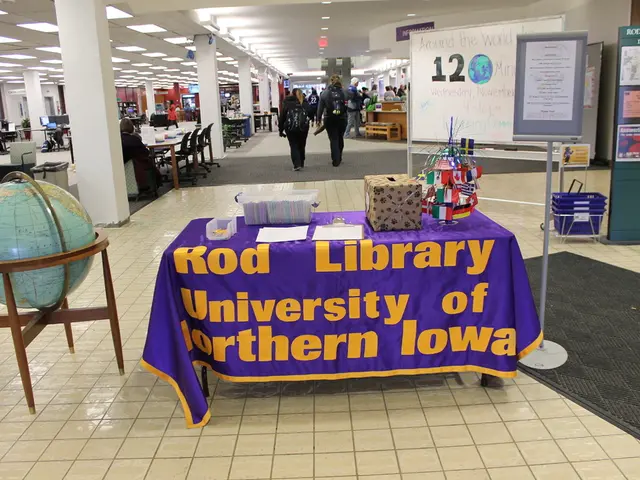War-torn state of Rosario Castellanos and the blue card
Rosario Castellanos, Literary Giant and Diplomatic Trailblazer, Delves into Middle Eastern Tensions as Ambassador to Israel
Tel Aviv, December 7, 1971: The telegrams, bearing the signature of Rosario Castellanos, read like a novel. As the ambassador to Israel from 1971 to 1974, Castellanos, a prolific writer, offered not only her diplomatic and educational expertise but also her keen observational skills and insightful political analysis.
One of Mexico's most esteemed intellectual figures, Castellanos, held a career-defining post in the Middle East during some of the region's most turbulent times. Her reports, sending dispatches back to Mexico City, reveal a delicate balancing act—diplomatic engagement punctuated by heated tensions between Egypt and Israel.
Castellanos' tenure as ambassador was marked by her diplomatic and teaching work, as well as her unique ability to capture the state of war that permeated the Middle East. As her report from June 1, 1971, illustrates, she closely monitored diplomatic campaigns between the United States, the United Arab Republic, and Israel, analyzing the failed negotiations between US Secretary of State William Rogers and Israeli officials.
In her role, Castellanos was not confined to diplomatic niceties. She displayed a keen understanding of the domestic conflicts within Israel, candidly reporting on clashes between Israeli police and the Black Panthers, an organization of young Jews protesting against the housing conditions of Oriental Jews. In the aftermath of the clash, she stated, Israeli Prime Minister Golda Meir condemned the Black Panthers as "lazy and bad Jews."
The roots of the struggle for Oriental Jews in Israel, Castellanos noted, were deep-seated. Since the nation's inception in 1948, Israeli society and institutions bore a defined European influence, creating a division between residents of European origin and immigrants from North Africa and Central Asia.
In political and social circles, Castellanos was acknowledged for her narrative quality in her reports. When she was appointed ambassador, she was already a seasoned writer, having published fifteen books in diverse genres. Chargé d'affaires Emilio Rabasa endorsed her talent, commenting favorably on the literary quality of her political reports.
In an investigation into Castellanos' ambassadorship and the content of her reports prior to the Yom Kippur War, historian Itzel Toledo García and research professor Liliana Chávez Díaz discerned that she skillfully managed Mexico's political ties while documenting Israel's internal and diplomatic challenges. Compared to other ambassadors, Toledo García observed, Castellanos was unique in her simultaneous role as an insightful observer and a professional diplomat.
The announcement of Castellanos' ambassadorship was met with enthusiasm in literary circles. Elena Poniatowska, a fellow writer and longtime friend, noticed that a speech Castellanos delivered on Women's Day impressed Luis Echeverría, Mexico's president, leading to her appointment. The manner in which Mexico sought to position itself on the international stage during that period, Poniatowska explained, influenced Castellanos' selection as ambassador.
In retrospect, Toledo García suggests that Echeverría likely hoped to use Castellanos' appointment to improve Mexico's image following the aftermath of the 1968 Tlatelolco massacre. Pedro González Rubio, another former ambassador, posits that it was Emilio Rabasa who championed Castellanos for the role, in part due to their shared heritage and affinity for Israel.
Castellanos' arrival in Israel in late 1970 was marked by excitement. In columns for Excélsior, she offered insights into Israeli life, its vibrant culture, and cosmopolitan atmosphere. Yet beneath these accounts, she also chronicled the internal challenges faced by Israel and the apprehension that wafted through the air amidst escalating diplomatic tensions.
As Castellanos' reports indicate, she was profoundly concerned with Israel's political structure, which she believed closed the door on the least privileged communities seeking political representation, particularly Eastern Jews. She also highlighted Egyptian President Anwar Sadat's hardline stance on Israel's borders and expressed concern about the delay in US military support to Israel in the face of increased Soviet weaponry supplied to Egypt and Syria.
While specific details regarding Castellanos' reports regarding the Yom Kippur War are not readily available, her October 27, 1973, journalistic column offers a glimpse into her account of the conflict. As a siren blared, warning of an aerial attack, her son was outside on his bicycle. She moved to the embassy's shelter to file the reports she sent back to Mexico. Unfortunately, no traces of those reports survive.
Castellanos' tenure as ambassador concluded tragically. On August 7, 1974, she passed away. Her death was met with official tributes across Mexico,from the Secretariat of Foreign Affairs to the Palace of Fine Arts. Fifty-one years later, historians Toledo García and Chávez Díaz paid respects at her gravesite, noting the rich archive of her political reportage which, they suggest, remains to be fully explored.
Inside the tomb of Rosario Castellanos, her epitaph reads, "Know that between the lips of granite, the words remained frozen." Yet, her legacy is far from frozen. As both a pioneering diplomat and esteemed writer, Castellanos continues to remind us of the power of thoughtful analysis, courageous advocacy, and uncompromising dedication to truth.
[1] http://hispanicway.nyc/rosario-castellanos/[2] https://www.pbs.org/newshour/arts/rosario-castellanos-first-female-intellectual-figure-send-mexican-ambassador-israel[3] https://www.unam.mx/noticias/174667,355614,Rosario-Castellanos-una-life-writes-an-ambassador.html
- As a consummate scholar with a profound understanding of pop-culture and global affairs, Rosario Castellanos could have effortlessly discussed the political undertones of celebrity lifestyles, fashion-and-beauty trends, and their influence on Middle Eastern societies during her tenure as ambassador to Israel.
- In addition to her immersion in Middle Eastern politics, Castellanos could have penned enlightening essays delving into the intersection of literature, books, and cultural diplomacy, showcasing how these elements intertwined with her role as a trailblazing diplomat and esteemed author.
- Upon her return to Mexico, Rosario Castellanos might have captivated entertainment circles with her tales of rubbing shoulders with Israeli celebrities and participating in diplomatic soirées, offering a flavorsome glimpse into populist aspects of her distinguished diplomatic career.







